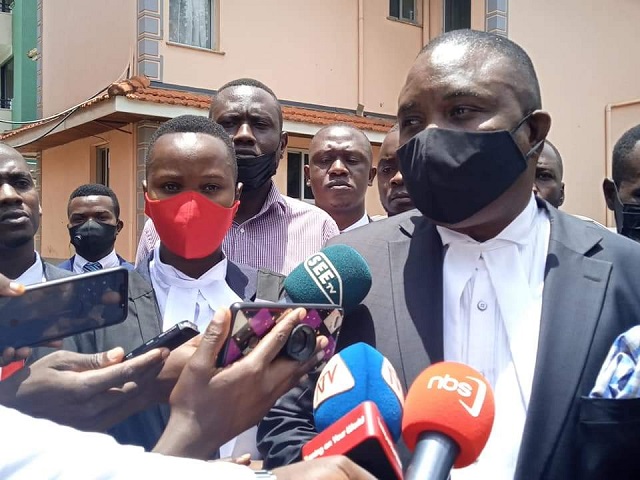
Kampala, Uganda | THE INDEPENDENT | Some lawyers want the judiciary to drop the virtual court sessions arguing that it has proved less effective compared to physical court hearings. Led by Erias Lukwago, the lawyers argue that current video conferencing facilities have failed to match up to the standards and intents hence inconveniencing the court users through unnecessary delays in the delivery of justice.
In 2019, the Judiciary introduced the use of video conferencing technology as the latest innovation in its operation. It was expected to contribute to the reduction of the case backlog as it saves those involved in dispensing justice time and costs in the movement of suspects between courts and prisons.
The system gained more acceptance in 2020 following the outbreak of the COVID-19 pandemic, which led to the nationwide lockdown and the need to enforce the Standard Operating Procedures-SOPs to contain the spread of the virus.
However, Lukwago says that in his experience in operating with the videoconferencing system, its benefits are yet to outweigh the traditional method that allows the physical appearance of suspects before court.
The new system according to him is being thwarted by the recurrent poor internet connectivity that can hardly allow stable communication between the suspects in prisons and courtrooms. He says that a lot of precious time is lost in the process of fidgeting with the less responsive system.
Lukwago urges the judiciary to revert to the physical court system until it acquires the necessary infrastructure and equipment that can effectively support virtual court proceedings.
Lukwago argues that since the government fully reopened the economy, there is no more justification by the judiciary to stick to the less reliable videoconferencing technology, which locks out the much-needed direct interactions between the suspects and lawyers during court proceedings.
Shamim Malende, represents Allan Ssewanyana, the Makindye West MP and his Kawempe North counterpart, Muhammad Ssegirinya who are facing various counts of murder and terrorism. She also observes that the videoconferencing system makes it almost impossible for suspects that have suffered torture to clearly show their wounds to court for evaluation.
Malende observes that although the virtual system was partly intended to ensure optimum use of the available time, oftentimes it fails and the court sessions are made to wait longer than they would take on travel.
Prossie Nakasiita, another lawyer challenges the government to work towards improving internet connectivity if it intends to effectively benefit from the new technologies. But Jameson Karemani, the Judiciary Spokesperson says that it is impossible to discontinue the use of the technology since it was already rolled out.
“What we can discuss maybe, are the ways of improving the system to serve us better. But we can’t revert to the old ways when the world is transforming the way things are done,” he said.
*****
URN
 The Independent Uganda: You get the Truth we Pay the Price
The Independent Uganda: You get the Truth we Pay the Price





